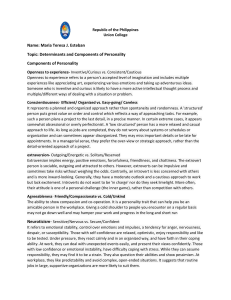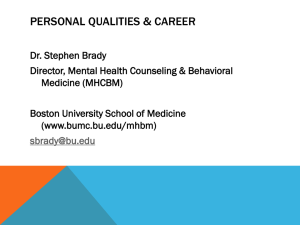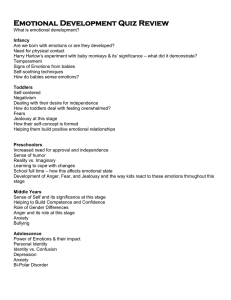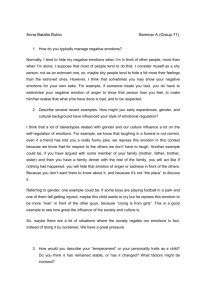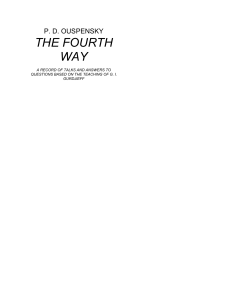Functions of Personality – 2013 class
advertisement
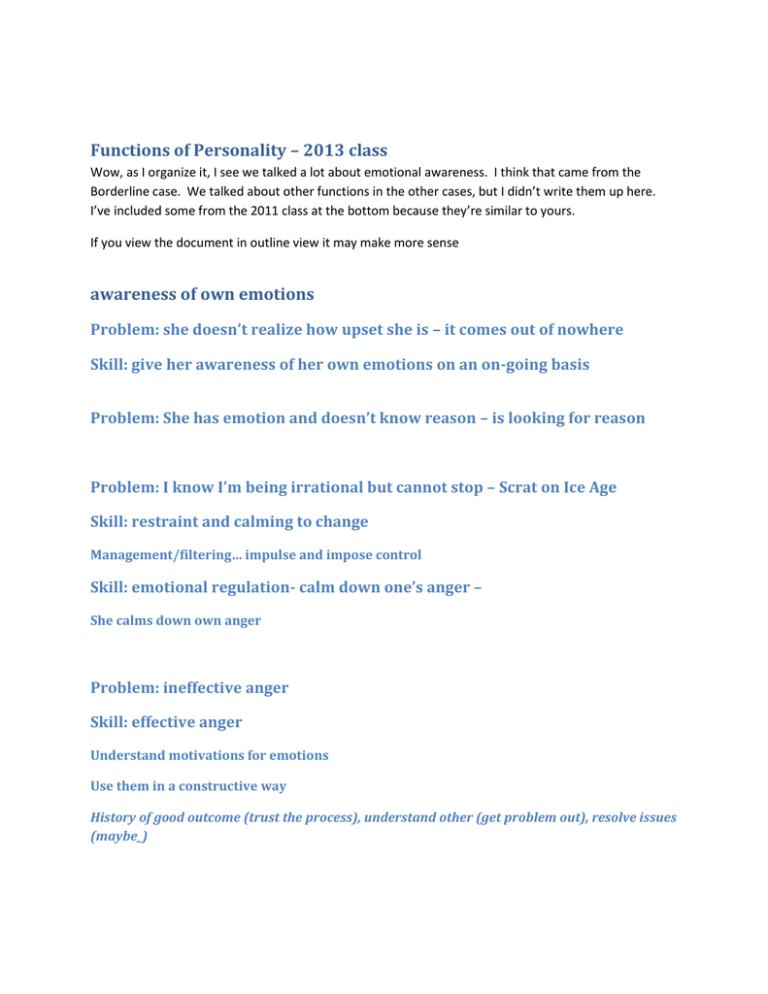
Functions of Personality – 2013 class Wow, as I organize it, I see we talked a lot about emotional awareness. I think that came from the Borderline case. We talked about other functions in the other cases, but I didn’t write them up here. I’ve included some from the 2011 class at the bottom because they’re similar to yours. If you view the document in outline view it may make more sense awareness of own emotions Problem: she doesn’t realize how upset she is – it comes out of nowhere Skill: give her awareness of her own emotions on an on-going basis Problem: She has emotion and doesn’t know reason – is looking for reason Problem: I know I’m being irrational but cannot stop – Scrat on Ice Age Skill: restraint and calming to change Management/filtering… impulse and impose control Skill: emotional regulation- calm down one’s anger – She calms down own anger Problem: ineffective anger Skill: effective anger Understand motivations for emotions Use them in a constructive way History of good outcome (trust the process), understand other (get problem out), resolve issues (maybe_) awareness of other’s emotions - in general awareness of other’s emotions - people you’ve been in relationship with Problem: He doesn’t know why she’s angry Problem: he is with someone with specific struggles and doesn’t respond well, he gets defensive Awareness of others / perspective – general ability for all others Realize your issues/quirks/disorders – I need to remember, realize, and be helpful and supportive Continuous sense of self Problem: she ties past to present … (NEED TO DO MORE HERE) Doesn’t know when and how to apply past to present. Overapplies it. Spring 2011 This is the list of personality functions, or what a personality needs to do, that came from our discussions of personality disorders and the structure of the book. Personality is usually not the piece, it’s how we process it, how manage or regulate it. Self Emotions – how do we come to know what we’re feeling Thinking – what habits and processes do we have for watching our thinking? Impulse – how do we recognize and respond to impulses? Relate - How do we relate and manage the three – emotions, thoughts and impulses Body - How do we notice and respond to needs and info from our body? Relationships with Other People Energy – how much do we let other’s energy affect us? Whose energy? Entirely – Dependent PD, Not at all – Schizoid PD Whose part? Whose responsibility? Whose fault? Always their fault – narcissist, sociopath Always mine? Dependent, avoidant Structure – How do we create structure for ourselves and the world we interact with? How do we respond ot change? (We are not the chaos or structure of the world, our personality is how to respond to it.) Create ours, can’t handle change – OCPD Control – how much do we need to control others? Are we willing to be directed by others? always in control (see world as dog-eat-dog) - APD/Sociopath Input, feedback, judgment and influence: How do we take input, feedback, judgment and influence from the outside world? All the time, everyone’s – Avoidant PD
